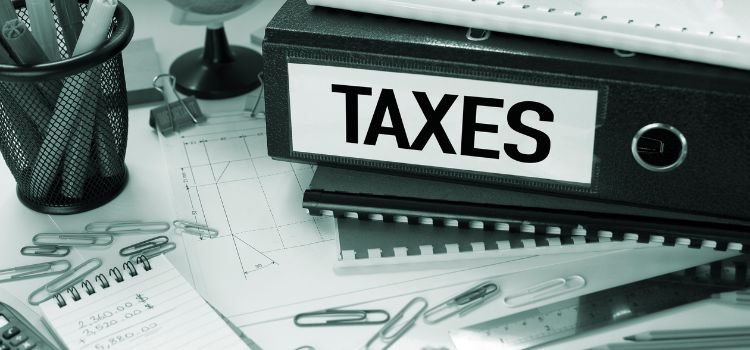Solid bookkeeping keeps your business healthy, helps you avoid HMRC issues, and shows you clearly whether you’re really making a profit.
This is where a clear, practical checklist comes in.
Think of it as your recipe for financial peace of mind: the right ingredients (records, receipts, reports) and the right method (done regularly, not last-minute). Whether you run a cosy café or a busy restaurant chain, having a bookkeeping checklist tailored for the UK hospitality sector can give you the clarity you need to grow.

Daily Bookkeeping Tasks for Restaurants
In a busy restaurant, it’s tempting to push paperwork aside until “later.” But when it comes to bookkeeping, little and often works best.
Spending just a few minutes each day can save you hours of stress when tax season comes around.
So, what’s worth doing daily?
- Record your sales: Whether you’re using a till system or a digital POS, make sure the day’s sales are logged and backed up. Even small cash sales add up, and HMRC expects accurate records.
- Track cash flow: Restaurants often deal with both card and cash payments. Checking what came in versus what went out (supplies, petty cash, etc.) keeps your numbers balanced.
- Save your receipts: Did you buy emergency milk for the café or extra wine for the bar? Snap a photo and store it digitally. Small expenses are easy to lose but they matter for tax relief.
Here’s a simple test: If HMRC asked you tomorrow for proof of yesterday’s sales and expenses, could you show them?
Keeping track of these basics means you’ll always be able to say yes with confidence.

Weekly and Monthly Accounting Checks
Daily tasks keep things moving properly, but weekly and monthly checks give you the bigger picture of how your restaurant is really performing.
Weekly checks might include:
- Reconciling your bank account: Match your sales with what actually landed in your account. Card payments can take a few days to clear, so this step helps spot any missing transactions.
- Reviewing supplier invoices: With multiple deliveries of food, drinks, and supplies, it’s easy for invoices to pile up. Setting aside a regular time each week keeps you from missing payments or being overcharged.
- Monitoring staff costs: Wages are often one of the biggest expenses. Keeping track weekly helps prevent surprises when payroll hits.
Monthly checks go a little deeper:
- Profit and loss review: Did you actually make a profit this month, once you account for all expenses? A monthly P&L keeps you grounded.
- VAT tracking: If your restaurant is VAT-registered, keeping an eye on VAT owed (or reclaimable) each month makes filing much less stressful.
- Cash flow forecast: Looking ahead helps you spot quiet periods or big expenses coming up, so you’re not caught off guard.
A quick question many owners forget to ask: Does the money in the till match what’s showing in the books? Regular checks like these can spot issues early, before turning into bigger problems.
Restaurant Tax Deadlines and Compliance Essentials
One thing every restaurant owner dreads? HMRC deadlines creeping up out of nowhere. Especially when you have other business issues on your mind.
Here are the big ones to keep on your radar:
- VAT returns: If your restaurant is VAT-registered, you’ll usually need to file every quarter. HMRC now requires submissions through Making Tax Digital, which means using compatible accounting software.
- Payroll (PAYE): Running staff wages comes with its own deadlines. Real Time Information (RTI) submissions need to be sent to HMRC on or before payday. Get this wrong, and fines can build up quickly.
- Corporation Tax: If you’re trading as a limited company, you’ll need to file a return and pay Corporation Tax nine months after your year-end.
- Self-Assessment: For sole traders or directors taking dividends, the big date to circle is 31 January each year. That’s when the return and the payment is due.
Most restaurant owners don’t miss deadlines because they don’t care; they miss them because they’re juggling too much. Having reminders in your calendar (or better, letting your accountant handle them) can save you both stress and late fees.

How Good Bookkeeping Helps Your Restaurant Grow
Detailed records can show you – for example, exactly which dishes are making you money and which ones are quietly eating into your profits.
They can reveal whether rising supplier costs are squeezing your margins or whether staff overtime is creeping up too much. Instead of guessing, you’ll know.
Many restaurants struggle in quieter months, but if your books are up to date, you can spot patterns and plan ahead — whether that means running a special offer, negotiating with suppliers, or building a financial buffer.
And when it comes to growth, clean and consistent books make all the difference.
Banks, investors, and even landlords often want to see your numbers before offering support. Being able to confidently hand over accurate accounts shows that you’re in control and that your restaurant is worth backing.
Conclusion
With a clear bookkeeping system in place, you take a lot of the guesswork out of managing your business. This checklist can help you stay organised and confident about your numbers.
The more consistent you are, the more you’ll see the benefits. And if it ever feels overwhelming, remember you don’t have to do it all alone; professional help is always an option.
Hope this was helpful.
Thanks for reading!

Meet Mo
Mo is experienced in dealing with clients from start-ups and expanding businesses for UK property investors in the retail and hospitality sector. He also brings his extensive experience in setting up and managing hotels, cafes, restaurants and rental properties across the UK to help clients achieve their business goals and succeed.
He regularly shares his knowledge and best advice here on his blog and on other channels such as LinkedIn.
Book a call today to learn more about what Mo and Monarc Finance can do for you.

